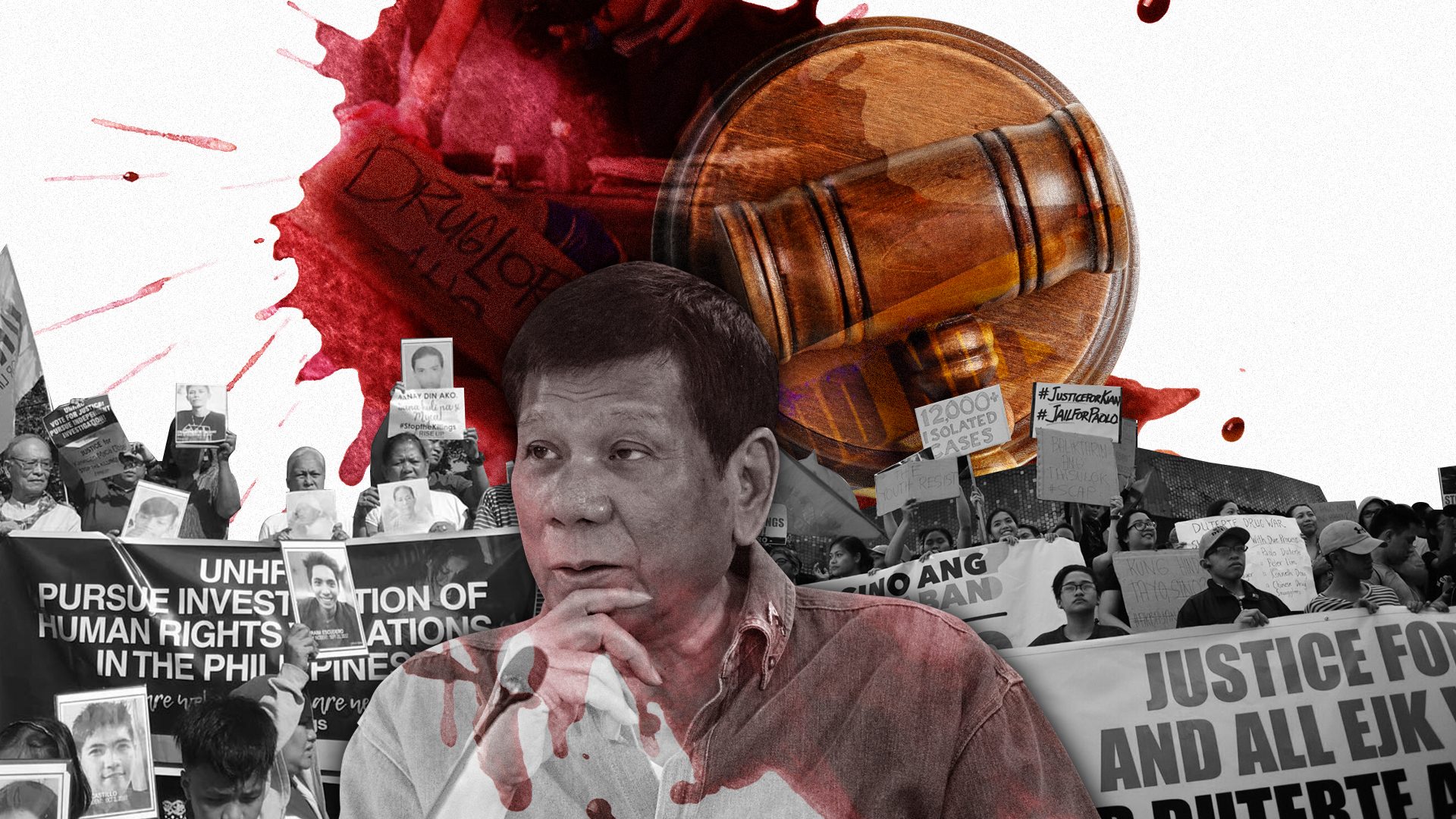SUMMARY
This is AI generated summarization, which may have errors. For context, always refer to the full article.

LONDON, United Kingdom – The International Criminal Court (ICC) has ended its waiting game with the Philippines.
After more than a year, on Thursday evening Dutch time, January 26, the ICC said the pre-trial chamber authorized the resumption of the investigation into killings under the bloody drug war of former president Rodrigo Duterte.
The Philippines government got a reprieve in November 2022 when the ICC paused the investigation as a procedural response to a clever move by the Philippine embassy in the Netherlands to ask for a deferral. (READ: Timeline: The International Criminal Court and Duterte’s bloody war on drugs)
During this period, the Philippine government was given a chance to submit more proof that it was willing and able to genuinely investigate the killings on its own. Had the ICC been satisfied with that, it would have ruled that it had no jurisdiction over the case due to the principle of complementarity.
However, prosecutor Karim Khan, who replaced Fatou Bensouda – the woman who opened the case in the first place – was not satisfied and requested the pre-trial chamber twice to reopen. This latest move is the chamber approving Khan’s request, moving along the process and starting a crucial new stage.
ICC not satisfied
“Following a careful analysis of the materials provided by the Philippines, the Chamber is not satisfied that the Philippines is undertaking relevant investigations that would warrant a deferral of the Court’s investigations on the basis of the complementarity principle,” the ICC said in its report Thursday, signed by judges Péter Kovács, Reine Adélaïde Sophie Alapini-Gansou, and María del Socorro Flores Liera.
At this stage, the prosecutor’s office of Khan will seek evidence to potentially request the chamber to issue summons or warrants. For whom? That’s not clear as of the moment yet.
Technically, no one in particular is the subject of the investigation yet, not even Duterte, who is named in all the reports thus far. But the ICC is usually interested in, if not the head of state, high-ranking officials. The scope of the investigation is not only the killings under Duterte’s drug war, but also the killings in Davao City when Duterte was mayor and vice mayor there from 2011 to 2016.
The chamber has noted in its past report that it was also looking into the potential accountability of “regional or even local organs of the State.”
Requesting for the summons or warrant, and getting approval of the chamber, is a process that has no definitive timeline. Even if a summons or a warrant is issued, the implementation is dependent on the cooperation of the law enforcement of that country, whether that’s in the Philippines which is no longer a member state, or if the subject is traveling to another country that is a member state.
The weakness of the implementation system is the main criticism against the ICC.
If the subject, whether that’s Duterte or any of his police generals, is never arrested, they can never be tried as the ICC does not hold trials in absentia.
DOJ probe not sufficient
In the pre-trial chamber report published Thursday, the ICC said it “concluded that the various domestic initiatives and proceedings, assessed collectively, do not amount to tangible, concrete and progressive investigative steps in a way that would sufficiently mirror the Court’s investigation.”
Duterte authorized a drug war review under his term, which was undertaken by the Department of Justice (DOJ) under former justice secretary, now Ferdinand Marcos Jr.’ solicitor general, Menardo Guevarra. The drug war review was the Philippines’ main defense that it was willing and able to investigate the killings on its own.
“The DOJ Panel review does not amount to relevant investigations within the meaning of article 17 and 18 of the Statute. Moreover, the number of cases reviewed by the DOJ Panel (namely, 302) is very low when compared with the estimated number of killings that allegedly occurred in the context of ‘war on drugs’ operations,” said the ICC chamber.
The Philippine government also tried to show as proof of willingness and ability the Joint Human Rights Programme with the United Nations, but the ICC said that was “irrelevant for the Chamber’s determination, as they are ‘regulatory and institutional reforms which have purportedly been adopted to strengthen national capacity’, and because the Philippines has not provided ‘concrete information about relevant investigations and/or prosecutions actually instituted pursuant to such reforms.’”
Duterte unilaterally withdrew the Philippines from ICC in 2018 when then-prosecutor Bensouda opened the inquiry. President Marcos kept the policy, even as he projects a warmer attitude toward human rights before the international community.
The ICC has granted limited immunity to former Davao City cop Arturo Lascañas, who has confessed to carrying out Duterte’s alleged kill orders to the DDS. Lascañas is in hiding, but, as an insider witness, he has access to the ICC’s witness protection program.“
This conclusion does not preclude the Philippines from providing material in the future in order for the Prosecution, or the Chamber, to determine inadmissibility on the basis of complementarity, if and when needed,” said the ICC.
The ICC added, “Moreover, when any actual case is brought by the Prosecution, a further admissibility assessment may take place.” – Rappler.com
Add a comment
How does this make you feel?


![[Vantage Point] The PDEA leaks](https://www.rappler.com/tachyon/2024/05/vantage-point-pdea-probe.jpg?resize=257%2C257&crop=255px%2C0px%2C720px%2C720px)
![[Edgewise] How Duterte can elude ICC arrest](https://www.rappler.com/tachyon/2024/05/thought-leaders-How-Duterte-elude-icc-arrest.jpg?resize=257%2C257&crop=272px%2C0px%2C720px%2C720px)
![[OPINION] Rodrigo Duterte and his ‘unconditional love’ for China](https://www.rappler.com/tachyon/2024/04/rodrigo-duterte-xi-jinping-august-2019.jpeg?resize=257%2C257&crop=91px%2C0px%2C900px%2C900px)



![[The Slingshot] Lito Patay’s 4 hours and 38 minutes of infamy](https://www.rappler.com/tachyon/2024/07/Lito-Patay-4-hours-infamy-July-19-2024.jpg?resize=257%2C257&crop=233px%2C0px%2C720px%2C720px)




There are no comments yet. Add your comment to start the conversation.